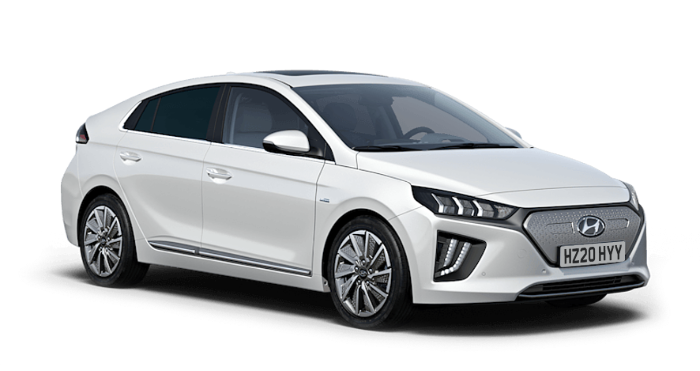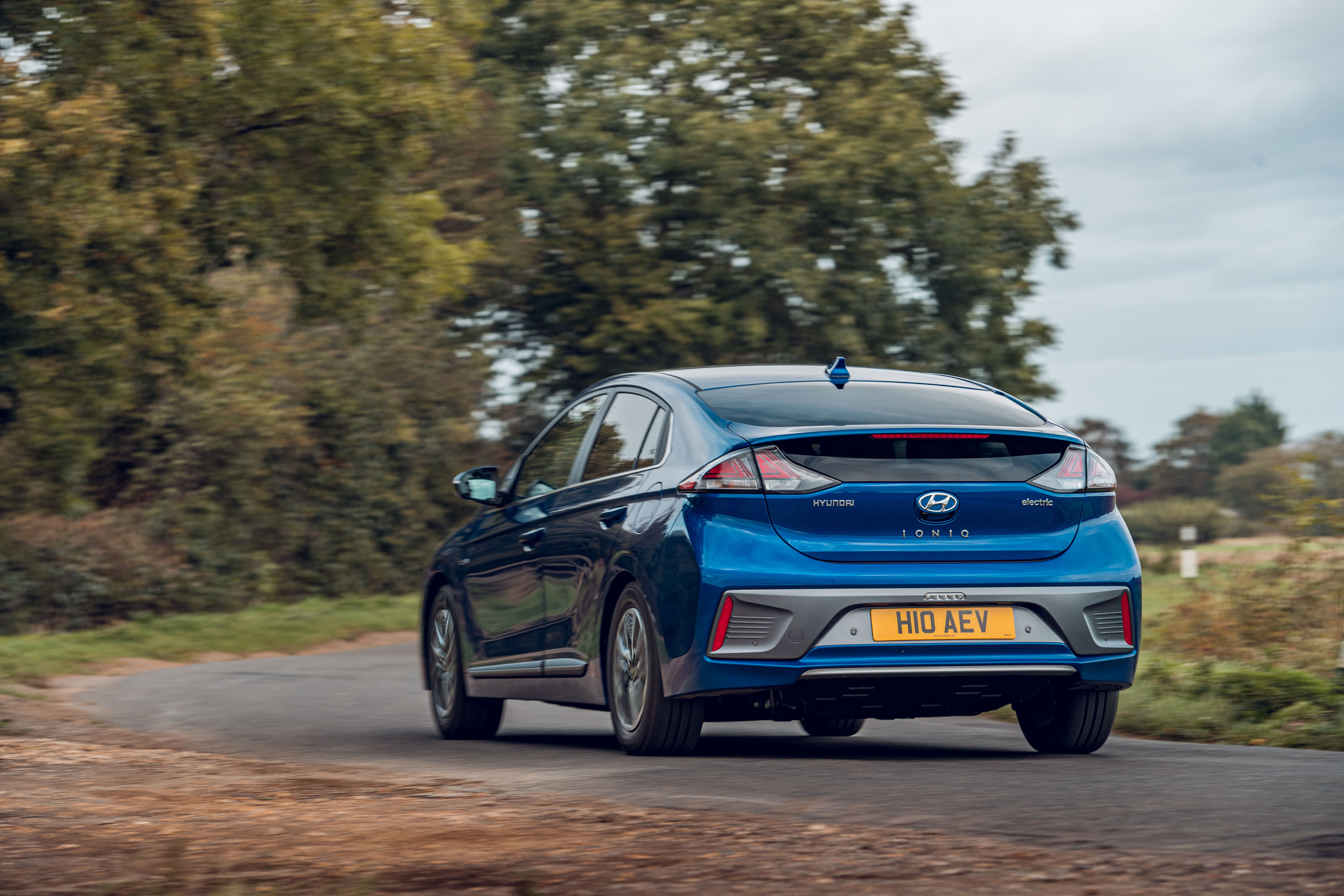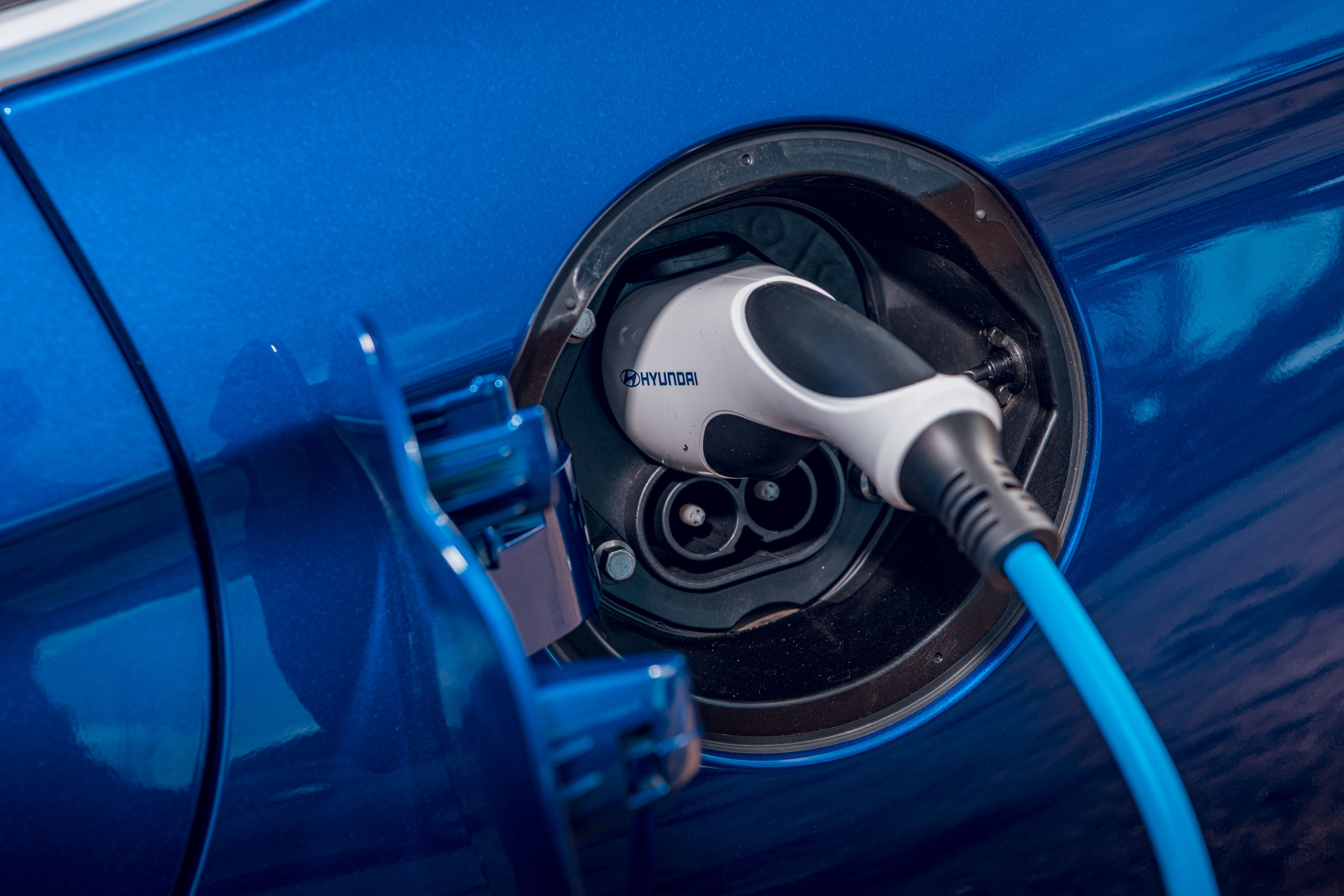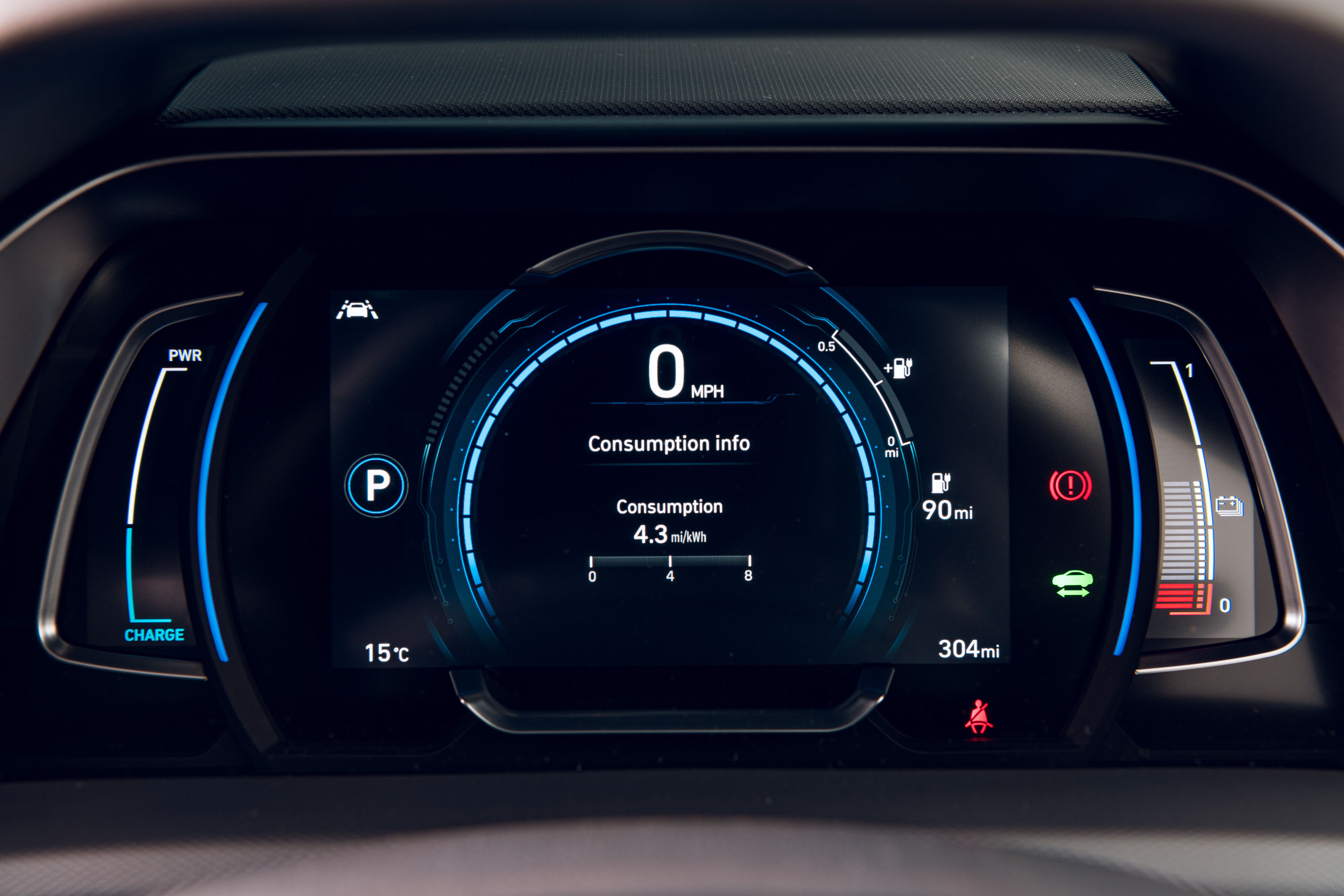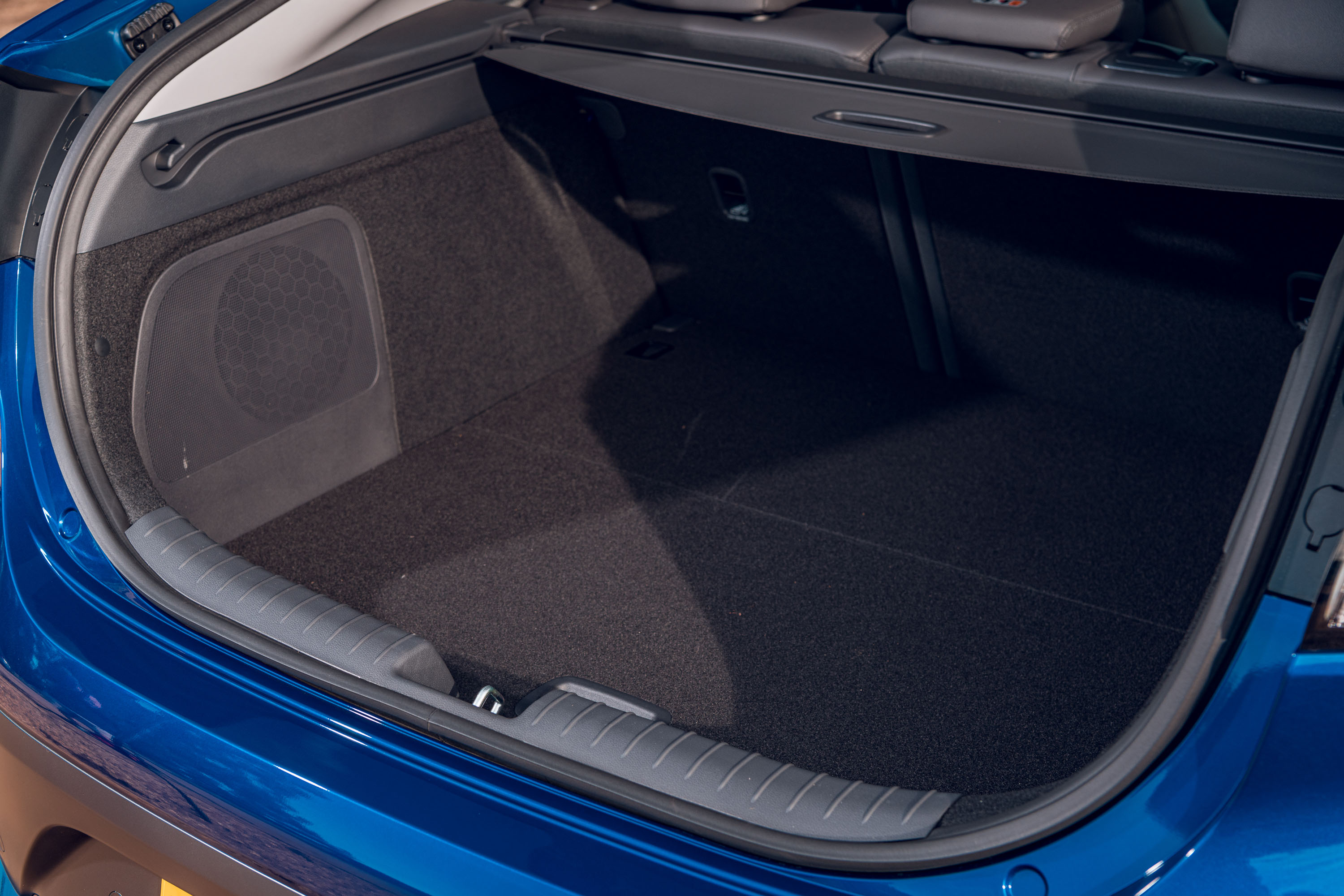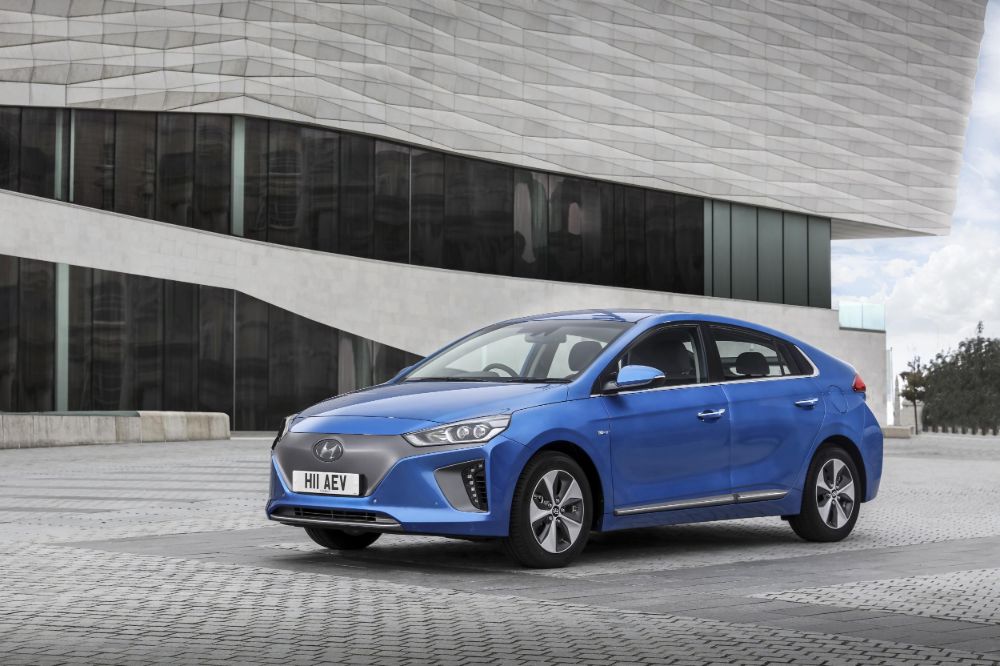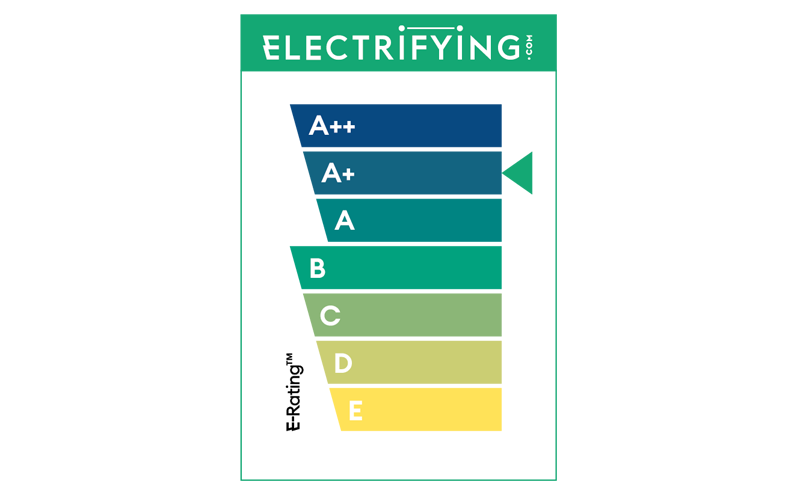Pricing
Following the removal of the Government plug-in car grant, the Ioniq is priced from £32,050. Its main rivals are the Nissan Leaf 40kW, VW ID.3 and the MG 5EV, which are both cheaper but have less battery range.
The alternative is to go for a smaller car such as the Renault Zoe or Peugeot e208 which can go further between charges but can’t offer the same interior space.
The Hyundai’s advantage over all of these is the equipment levels. Even the cheaper Premium model has some tasty technology included in the price, while an extra two grand buys the Premium SE with its leather seats, more electric adjustments and a suite of accident-preventing safety kit. That’s not bad value if you want to treat yourself.
Optional extras are few and far between, but if you fancy a retro touch, there’s a sunroof on offer for £395. The solid grey is the only 'free' paint option.
Running costs
The Ioniq is proving a popular choice with businesses and organisations who choose their cars with a spreadsheet rather than emotions. That means the running costs are really competitive versus other electric cars and petrol/diesel rivals.
Firstly, the fuel costs will be around a quarter of those from a conventional car, and the insurance groupings are pretty reasonable too at 16 or 17 depending on the model. One of Hyundai’s special selling points is the warranty – at five-years it’s one of the best in the business. Kia and MG beat it on length at seven years, but both are limited to 100,000 miles while Hyundai have unlimited mileage on the car. Only the battery is excluded – that gets separate cover which is for eight years or 100,000 miles.
Hyundai will also throw in five free annual ‘inspections’. While these aren’t services and you’ll still have to pay for anything that needs replacing, the cost will be far less than the price of maintaining a car with a combustion engine.











